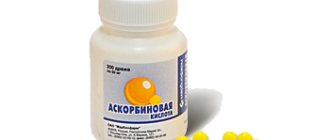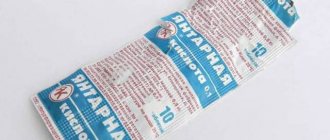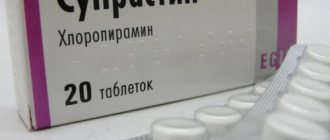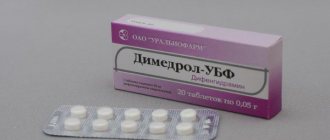Ascorbic acid is the most common, accessible and in demand drug. It is consumed with great pleasure by both children and adults.
But ascorbic acid is not always good for health; excessive consumption of this vitamin, despite age-related indications and dosage, can negatively affect a person’s well-being.
An overdose of ascorbic acid is caused by characteristic symptoms and disorders of the functioning of the whole organism. Often, symptoms of an excess of vitamin C can be found in children due to uncontrolled intake of this element. In this connection, not only adults, but also children should not take this vitamin without special recommendations from a doctor, especially uncontrolled.
What is ascorbic acid?
Ascorbic acid is an organic compound with the chemical formula C6H8O6, which is one of the most necessary substances for the human body.
With sufficient consumption, bone and connective tissue function normally.
Vitamin C is an antioxidant and performs biological functions as a reducing agent and coenzyme in many metabolic processes.
Under natural conditions, larger amounts of ascorbic acid are found in vegetables and fruits.
Reference! Synthetically, the drug is obtained from glucose. Some stages of production are subject to fermentation. It is synthesized by plants from galactose and glucose, as well as by many animals from galactose.
If we describe the physical properties of ascorbic acid, it looks like a white powder with a sour taste with a crystalline molecular structure.
This powder dissolves easily in water and alcohol. The temperature at which ascorbic acid can melt is 190 – 192 °C.
The drug acts as a powerful antioxidant, and is also used to normalize acid-reduction processes.
Doctors prescribe it for:
- infectious diseases,
- intoxication,
- acute radiation sickness,
- diseases of the gastrointestinal tract and liver,
- helminthiasis,
- cholecystitis,
- ulcers,
- burns,
- physical and mental fatigue,
- to fill the body with useful elements during pregnancy.
During the autumn-winter period, ascorbic acid is recommended for all people.
At these times of the year, there is an acute shortage of vitamin C in food, and the body simply needs to compensate for its deficiency through preparations containing this vitamin.
What happens if you eat a lot of vitamin C?
An overdose of ascorbic acid can make a person feel ill. His condition will depend on the amount of the drug taken.
The body will feel an excess of the vitamin approximately two hours after consuming it.
A person with a slight overdose may feel general weakness and anxiety , he may feel dizzy and his heart rate may increase.
If a person experiences a nauseating feeling and even vomits , then the poisoning is quite serious.
After heavy vomiting, the patient experiences increased gas formation in the intestines and suffers from flatulence.
Against this background, it is difficult for the victim to sleep, his sleep is disturbed and irritability appears.
In case of an overdose, you may notice allergic rashes like urticaria on the skin.
Since vitamin C is perfectly excreted in urine, many people with good functioning of the genitourinary system and strong immunity may not experience any serious reactions at all when consuming an excessive amount of the drug.
For people whose body condition is weakened, even a slight excess of the dose of the drug can greatly harm their well-being.
First aid
If poisoning with ascorbic acid is detected, it is necessary to provide the victim with first aid. It includes:
- If less than 15 g is swallowed, drinking plenty of fluids will help.
- In case of taking a dose exceeding 15-20 g, it is necessary to induce vomiting. Drink 2 glasses of water and perform gastric lavage. Water is used without additives and non-carbonated. Sugar and sweeteners must not be used.
- If an allergic reaction develops, you must take an antihistamine.
- You should take enterosorbent. It is not recommended to use activated carbon, because... it is less effective against acid poisoning and is not able to neutralize the acidic environment.
If kidney function is impaired, drinking large amounts of fluid is dangerous, so in this case, a health professional can provide assistance.
READ Kapoten overdose
You need to call a doctor at home or visit a medical facility yourself. Even seemingly harmless poisoning can cause dangerous changes in the body.
Is it possible to eat a pack or jar of ascorbic acid?
In childhood, it happens that because of the sweet taste of vitamins with glucose, the child cannot stop, and without adult supervision he can easily eat the entire pack.
But if you exceed the 2 gram dose of the drug, then the absorption of the nutrients it contains into the blood is noticeably reduced.
The fact is that vitamin C dissolves perfectly in a liquid medium and, at a concentration exceeding 10 g (2 cans of 100 tablets each), can be excreted in the urine without any problems.
Acute symptoms of an overdose in a person may appear after taking 20–30 g of the vitamin.
Thus, one can of ascorbic tablets will not cause anything serious to an adult, but a child may develop allergic skin rashes and other symptoms depending on the baby’s health condition.
Attention! Even an adult will probably get acute poisoning if he eats 4–6 cans of ascorbic acid at a time (100 tablets with 50 mg of ascorbic acid in each). This dose is almost lethal and can be fatal.
How many tablets can you take per day?
Ascorbic tablets are usually packaged in 50 or 100 pieces per package.
The average content of vitamin C in one vitamin is 50 mg or 0.05 g.
The total ascorbic acid content per vial will be 2500 mg or 2.5 g and 5000 mg or 5 g.
Average daily doses of ascorbic acid consumption depend on the following indicators:
| People | Age | Ascorbic acid consumption rates, mg/day |
| Newborns | From 0 to 6 months | 40 |
| Newborns | From 7 to 12 months | 50 |
| Children | From one year to 3 years | 40 |
| Children | From 4 to 8 years | 45 |
| Children | From 9 to 13 years | 50 |
| Girls | From 14 to 18 years old | 65 |
| Boys | From 14 to 18 years old | 75 |
| Men | After 18 years | 90 |
| Women | After 18 years | 75 |
For those people who smoke a lot or abuse alcohol, it is advisable to increase the permissible daily intake to 2 g .
This is due to the fact that under the influence of alcohol and nicotine, vitamin C is partially destroyed, and for people with bad habits, consuming a standard dose is not enough.
It is also recommended to slightly increase the dose of daily vitamin C intake for pregnant women and breastfeeding mothers to 80 mg .
This is due to the fact that during such critical periods a woman’s risk of vein diseases and skin defects (stretch marks) increases, and ascorbic acid helps stimulate the production of collagen and elastin and prevents such negative health phenomena.
The baby extracts all the beneficial substances it needs with mother's milk; for this reason, a woman's body should always receive a sufficient amount of vitamin C for her and her baby.
Overdose symptoms
Symptoms of an overdose of vitamin C are similar to signs of drug poisoning.
The main symptoms of poisoning may include:
- restless sleep;
- increased feeling of anxiety;
- causeless irritability;
- dizziness;
- nausea and even vomiting;
- indigestion, which manifests itself in the form of diarrhea and increased gas formation;
- stomach cramps.
Reference! In children, an excess of ascorbic acid in the body is expressed by an allergic rash on the skin, its redness and severe itching.
Danger of intoxication
Long-term use of high dosages leads to the development of poisoning. The body develops pathological changes in the functioning of the digestive tract, kidneys, and blood coagulation system. An overdose of vitamin C is dangerous due to the following:
- The urinary system is affected. Due to a violation of the filtering function, intoxication increases.
- Poisoning with ascorbic acid poses a great danger if you are prone to urolithiasis and cholelithiasis, because An overdose of vitamin stimulates the formation of stones.
- In case of poisoning, acute gastritis may develop due to increased acidity levels. Inflammation of the gastric mucosa occurs due to damage from the excess salt component. The condition is characterized by acute pain and increased body temperature.
READ Donormil overdose
With existing pathologies of the digestive tract, exposure to acid can cause gastrointestinal bleeding and the development of peptic ulcers.
Consequences
An overdose, as a rule, ends in poisoning the body.
A person urgently needs to rinse his stomach by inducing vomiting.
consequences may arise :
- disruption of the normal functioning of the kidneys, including the pancreas;
- gastritis manifestations and peptic ulcers;
- the absorption of newly supplied vitamin C decreases;
- chronic vitamin C intolerance appears;
- blood clotting worsens;
- Women's menstrual cycles are disrupted;
- blood pressure increases in older people.
Due to a sharp decrease in the body's strength due to an overdose of the drug, the functioning of the body's immune system decreases in a person, and he often begins to suffer from respiratory diseases.
In pregnant women, excess vitamin C in the body is manifested by severe vomiting and severe intestinal cramps.
This reaction is associated with the body’s increased fight against an overdose against the background of protecting not only the expectant mother, but also her fetus.
If a woman often overeats this vitamin, then her child may subsequently develop allergies to various irritants.
Often such children cannot tolerate citrus fruits and eat fresh fruits and vegetables with caution, as they suffer from skin rashes of various types.
A rather unpleasant and fairly common consequence of poisoning is an acute allergic reaction .
It manifests itself in the form of anaphylactic shock or angioedema. Unfortunately, such a reaction of the body can lead to death in the future.
Treatment methods
It is symptomatic. Upon admission to the hospital, the patient is given:
- Gastric lavage.
- Setting up an IV for detoxification.
- Normalization of the drinking regime.
Correction of identified changes in the gastrointestinal tract, kidneys, and reproductive system is carried out. If abnormalities are detected, medications are used.
Antidote
It is not accepted for the treatment of overdose, as it has not been developed. The prognosis for poisoning is favorable.
Prevention of poisoning
In order to avoid an overdose of ascorbic acid and not get poisoned, you must follow the rules for taking it, which are always prescribed in the instructions attached to the drug.
In addition, vitamin C is recommended to be taken in winter or late autumn.
It is during these periods of time that vitamin deficiency is especially acute, and the body absorbs all nutrients with pleasure and without consequences.
In the summer, it is better not to use ascorbic acid at all without a doctor’s recommendation, since vitamin C is abundantly contained in fresh fruits and vegetables during this period.
Important! Packaging with sweet vitamins must be stored out of the reach of children. They should only use pills with parental permission.
It is necessary to understand that drugs based on ascorbic acid can also cause harm to the body, just like an overdose of any medications.
Therefore, it is important to follow the recommendations for the use of daily doses of the drug and not exceed the permissible limit.
Recommendations for taking the medicine
You should not take it on an empty stomach, especially if you have gastrointestinal disorders. This can lead to damage to the mucous membranes. You should adhere to the dosages indicated in the instructions. Children should understand that ascorbic acid with glucose is not a candy, but a medicine. Lack of parental control leads to dangerous consequences.
With the doctor's permission, the medicine is taken to prevent anemia. If necessary, the pills are combined with other vitamin complexes. If a deficiency of vitamin C in the body has been identified, the drug is prescribed separately. Adults are recommended to take 2 tablets per day, children - one.










